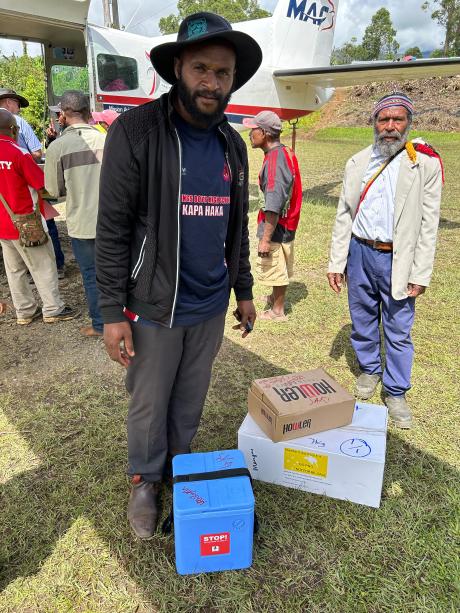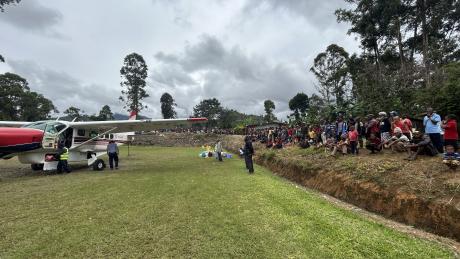
Join Samuel Gnanadurai, MAF's Regional Monitoring, Evaluation, Accountability & Learning (MEAL) Specialist, in a conversation with a Community Health Worker as both wait for the MAF plane to land. Samuel, from India, was in PNG to carry out a survey on MAF’s impact.
It was a chance meeting. He had come to this small town in PNG for health workers’ training and was ready to carry back his newly acquired knowledge and some drugs to his small village. I was supposed to have landed in his village to conduct a survey, speaking with local representatives. But due to heavy cloud cover, we could not get there and instead landed in the nearest airstrip a few miles away.
“Can I ask you a few questions, Sir,” I approached him. I was intent on listening to him. “Of course, yes,” he said.
We both sat cross-legged near the runway. Yes, at most of the 200 airstrips MAF serves in Papua New Guinea, you wait on the side of the runway where there aren’t any fancy terminals to protect you from the sun.
MAF means so much to us. We never knew the outside world till MAF flew in. But our lives have changed after MAF came in.
Saki lives in Megau, a very remote village in PNG and works there as a health worker. He had come to the Kompiam District Hospital for training and to collect vaccines and immunisation drugs. Being the only trained health worker in his community which is made up of 7 villages, each with a population of 200–300 people, his role involves first aid, administering vaccines and referring patients to hospital who cannot be treated by him.
“The nearest city to our village is a seven-day walk,” he said. “Our work is to collect coffee and sometimes betel nuts and sell them in the nearest market. Of course, the nearest market is in that city seven days’ walk away. Most of that distance is dense forest, and you have to cross mountains too.
“But our lives have changed after MAF came in.”
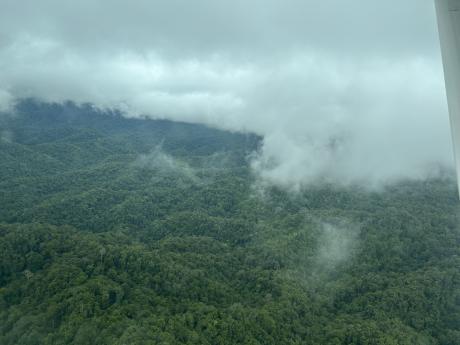
Mission Aviation Fellowship pilots dedicate their lives to the service of nations like PNG, flying in small planes and landing on complex, remote airstrips.
“MAF means so much to us. We never knew the outside world till MAF flew in,” he continued. “But you know, it is really costly for everyone in the community to afford even that small fee that is being collected by MAF. So, the people who cannot afford, put all the cargo (coffee) onto the plane, walk the seven days, and collect the goods back in the city. MAF has them stored at their place. Our people then sell the coffee in the city, buy goods (rice and food and other store goods) for their households and the village, put them back on a MAF plane, and walk back the same distance.”
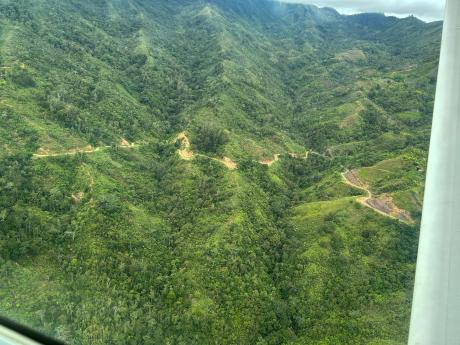
I asked him: “So how do you book a flight? Is there a flight every week? How do you know the flight schedule?”
“Our airstrip is surrounded by seven villages. Two of them across a river. So, every day, the village leaders walk about to the airstrip to meet the MAF agent and ask about the flight,” he explained.
“So, how long will that walk be?” I asked.
“Short distance only, maybe one or two hours; crossing the river may sometimes be difficult,” he said. “Cell phones hardly work in our village. The MAF agent talks to the MAF base on a radio.
“Sometimes the flight tries to land, but due to the bad weather conditions, it cannot land, as the clouds may cover the runway. In such cases, we wait longer; till MAF comes in to help.”
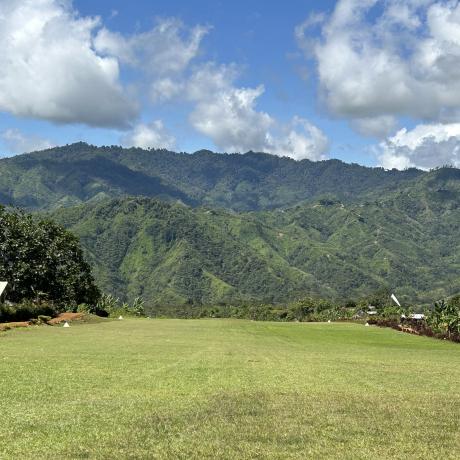
Suddenly, we hear the sound of the plane. It was coming to pick us up. The plan was to go to his village, drop him and then go to the base where I lived. The pilot got down and said, “Sam, we can’t go to the village where Saki lives today, the cloud cover is intense and quite low”.
I turned to look at him. That smile was no longer there. His wait to go back to his village continued. To see his wife. Administer vaccines and drugs to his people. Perhaps a week more, or even two until MAF could take him back. If MAF is not there, he had to walk. For a few days, perhaps. But he preferred to wait, for walking through the jungles could sometimes be dangerous.
